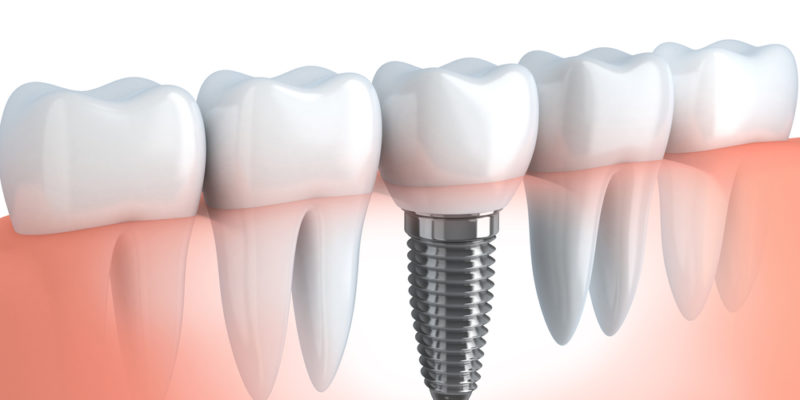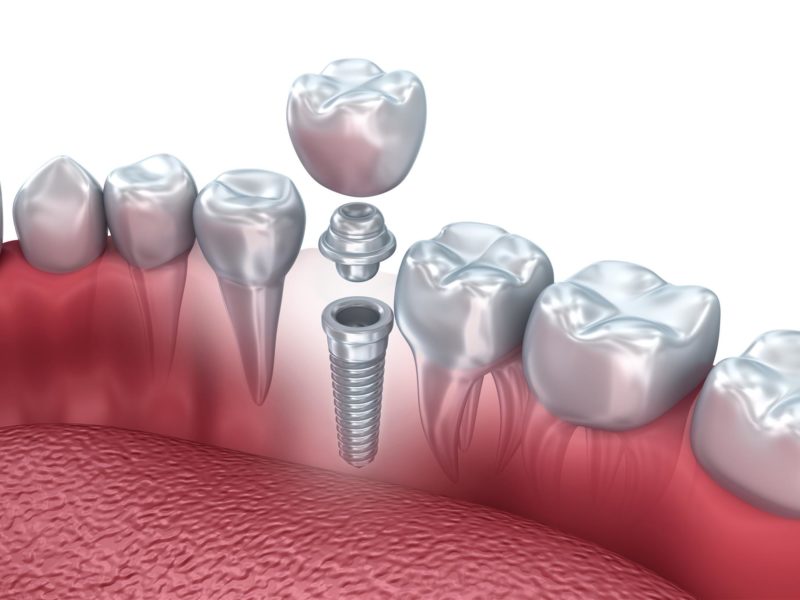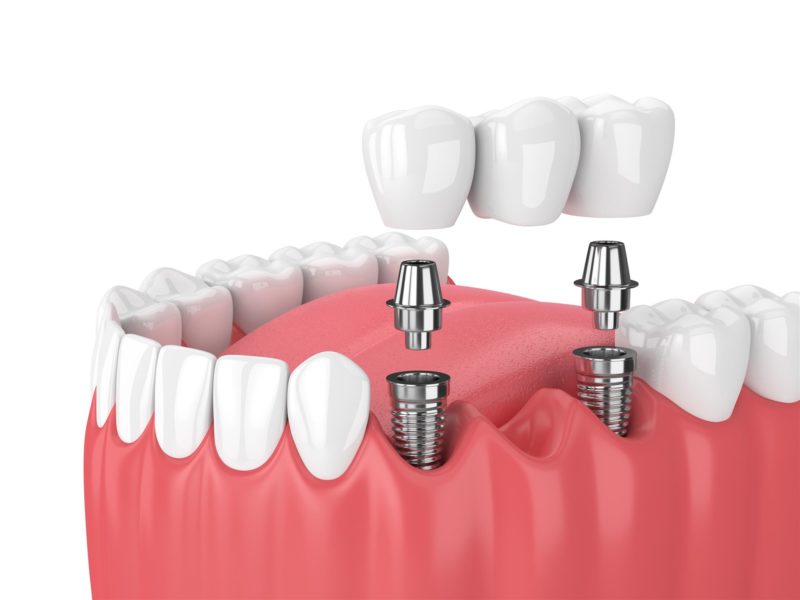Before development of dental implants, dentures and bridges were the only alternative to replacing a missing tooth or teeth.
Implants are made of either a titanium or zirconia structure that are placed in the area of the tooth normally occupied by the root. Implants are anchored to the jawbone and act as a foundation for an artificial tooth or permanent bridge. In some cases, implants can be used to attach dentures.
Not everyone is a candidate for a dental implant, however. For a successful implant to take hold, a candidate must have proper bone density and have a strong immune system. In all cases, dental implants require strict oral hygiene.
Implants are so well designed that they mimic the look and feel of natural teeth.
Surgery is necessary to prepare the area for an implant and place the implant in the mouth. Following the procedure, a period of time is required for the implant to take hold and for bone tissue to build up and anchor the device. In most cases, metal posts called abutments are inserted into the implant during a follow-up procedure to connect the tooth.
Because implants require surgery, patients are administered anesthesia and, if necessary, antibiotics to stave off infection following the procedure.
Like any restoration, implants require diligent oral hygiene and proper care to ensure they last a long time. When properly cared for, dental implants can last a lifetime, making them one of the best investments for long-term and stable tooth replacement. The best part of an implant is that it can give you back confidence, comfort, and get you back to not what you “can” eat, but what you “want to”eat.



